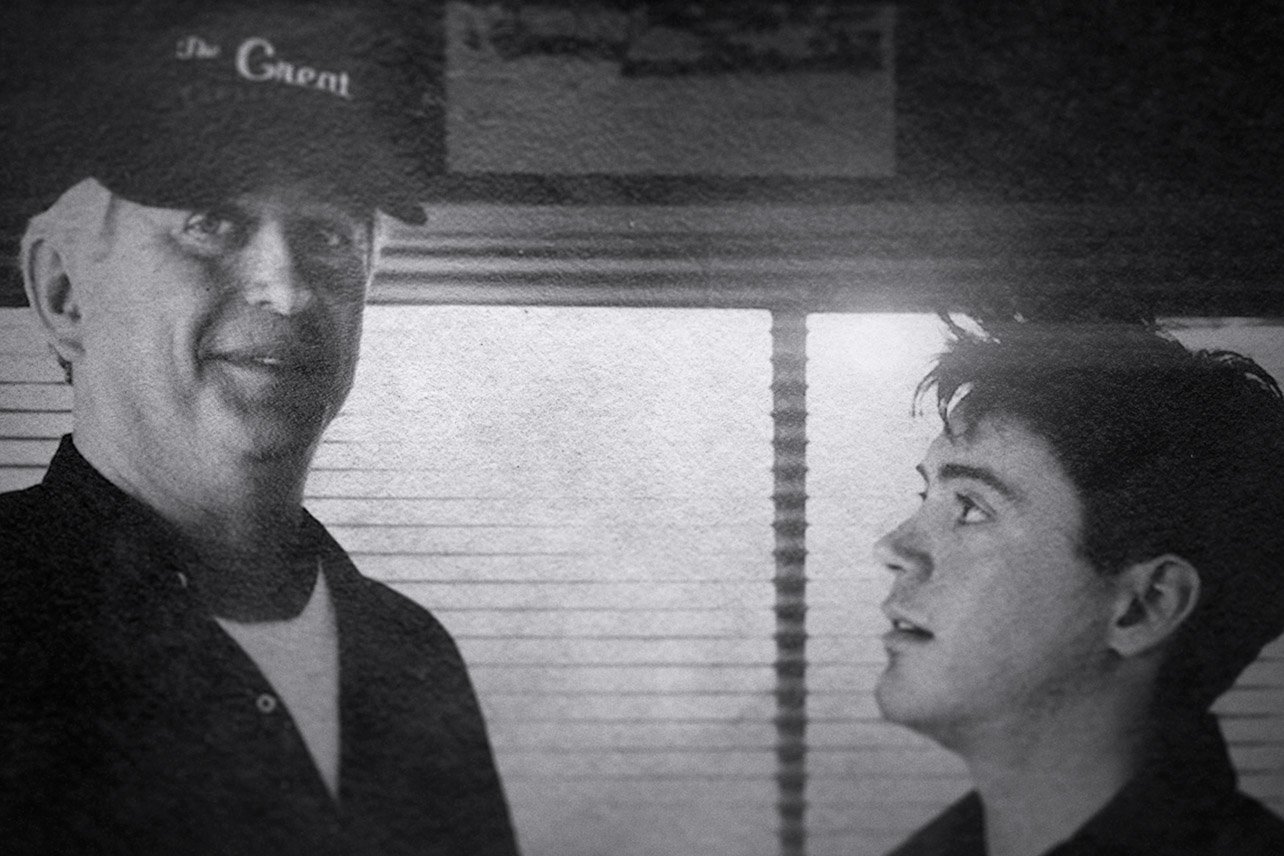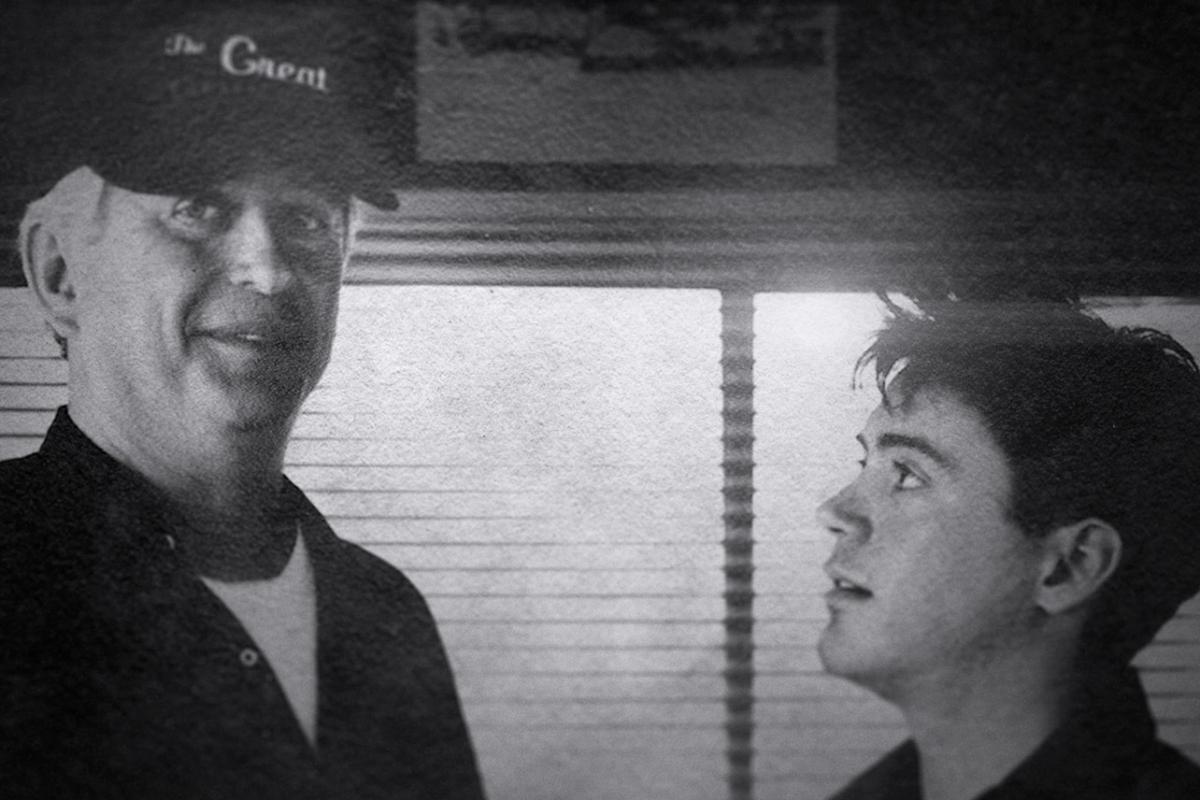
sir (now on Netflix) lets us take a look inside Robert Downey Jr.’s home — and a little bit of what’s in his heart. And that would be his love for his father, Robert Downey Sr., the renowned filmmaker famous for disrupting the New York underground film scene of the 1960s and ’70s. This documentary is a final project for Sr., a collaboration with Jr. directed by American movie‘s Chris Smith and for both Downey men inseparably and inscrutably autobiographical. What begins with Jr.’s quest to find out “who my father is right now” ends in a poignant portrayal of a man in the final stages of life – he died in 2021 – and in the process of reflection.
SR.: STREAM OR SKIP?
The essentials: “I was just Bob Downey’s kid for a long time.” It’s hard to believe that Robert Downey Jr. — you know, “I am Iron Man” — was ever overshadowed by anyone else, but that’s how long and far and wide he stood his fathers. We catch up with Jr. and Sr. at Jr.’s home in the Hamptons as they discuss naming this movie sir; Sr. doesn’t like it but obviously it stuck. The documentary is part of Sr.’s project, a sort of biographical flashback that sees him visit locations in New York City where he filmed some of his notoriously wild underground films and eyeball the building where the Downey family lived in the lived in the 1970s. Jr. recalls that his father was driven by his vision of filmmaking – always people around him, always working, always writing, always turning the house into an editing room.
Sr. made eight films between 1965 and 1975, most famously the satirical dark comedy Putney Swope, which was entered into the National Film Registry. The films were highly eccentric live-wire comedies, often high-profile or allegorical. Paul Thomas Anderson was inspired by them. Alan Arkin, interviewed here, says the common denominator among them is “a benign nihilism,” and that Sr.’s free-running productions gave him the impression that he would go into the Bowery and stick people who were “half-broke “ be “ in his films. (Let me tell you, there’s something special about watching a documentary where Alan Arkin uses the phrase “half in the bag.”) Sr. made a movie called lb, in which 18 human actors played “dogs” locked in the same cell; Jr. was five years old when his father hired him to star in the film, delivering the line, “Do you have hair on your balls?” to a bald man who plays a Mexican hairless pooch, and the rather bizarre phrase , which you are reading now, is quite nuanced and insightful in characterizing these two men and their relationship.
Even though sir caught in some of the crazy fodder that made Sr.’s movies great, he remains firmly rooted in the last few years – 2019, 2020, 2021. Sr. visits a duck pond in the middle of New York and marvels at how many there are little chicks frolicking in such a dense urban area. He has a dizzy spell and has to sit down. Sometimes he trembles, he says. He has Parkinson’s and we’ll see how he physically deteriorates as the documentary goes on.
We’re right next to Jr. and Sr. as they talk on the phone, with the former interviewing the latter for the film. They touch on some of the troublesome stuff — how Sr. taught Jr. to smoke marijuana at age six, then watched his son battle a serious addiction as he grew up. Sr. also struggled with drugs and it ended his marriage to Jr.’s mother, Elsie Ford. But the movie doesn’t delve into that stuff. You both may seem to be in a place of forgiveness, or possibly judgment, but definitely in a place of mutual affection and some understanding. It helps that they have a film, that film, that they can work on together.
Which movies will it remind you of?: The latest batch of surprisingly intimate celebrity bio-documentaries includes Val Kilmers ValCharlotte Gainsbourgs Jan from Charlotte and Jonah Hill and His Therapist Movie support.
Notable performance: We’re all familiar with Jr. and his inimitable personality (essentially a softer version of the flippant fast-talker we see on screen), so it’s fascinating to zoom in on Sr. and see just how far the apple has fallen from the tree.
Memorable dialogue: TV producer Norman Lear describes working with Sr.: “The time spent with him was perfect, wonderful, wonderfully crazy.”
gender and skin: none.
Our opinion: sir is shot in rich, crystalline black and white, perhaps to reflect the aesthetic of Sr.’s early work, perhaps to give it a nostalgic aesthetic, perhaps to reflect the relationship between father and son in a warm, soft, gray realm where simple Emotions – love, respect, affection – can coexist comfortably with the more complicated ones. There’s a bigger idea at play here that clearly dispels any concerns that the film is a vanity project or a navel-gazing exercise, and it’s clearly articulated during a Zoom session between Jr. and his therapist, with the latter pointing out that he and his father did. Their personal lives have always inevitably been intertwined with their filmmaking, so it makes sense that they would explore their relationship through their art.
Remarkably, it takes a moment for this revelation to sink in, because realizing that a man as famous as Robert Downey Jr. is allowing us to eavesdrop on his therapy session is an obstacle we must overcome. But it makes sense to include it; there is an openness and vulnerability to sir which the Downey men may have found, if not curative – that may not be the right word given the emotional complexity of their situation – then at least necessary. Which is not to say that the film is nothing but raw nerves. It’s edgy in its restless meta qualities, with scenes that often delve into the actual conception and construction of this film. It’s just what Sr. and Jr. do, and not including such self-analysis—because self-analysis is what it is—would be ignoring a large part of their lives.
But that’s the high-minded stuff. The film becomes more direct as Sr.’s condition worsens and Jr. openly contemplates whether a moment could be the last time he sees his father alive. Sr. sits on an adjustable bed, his room has been converted into a makeshift editing room, and watches the finished film – but if it were finished, how could it contain this exact scene? There’s a tongue-in-cheek disrespect for these men and their work (there’s a point where Jr. says of his father, “I still feel like he fucks with us on some level”) that underscores everything what they do, where we do Continue understanding Arkin’s comment on “benign nihilism.” And that’s where the high-spirited stuff creeps in again, though it never undermines the tenderness of a quiet moment when Jr. and his son Exton lean into a sick, bedridden Sr. for a three-way hug. This is the heartbreak of impending loss.
Our appeal: Stream it. sirExploring a famous – and often infamous – father-son relationship is as moving as it is fascinating.
John Serba is a freelance writer and film critic based in Grand Rapids, Michigan. Read more about his work below johnserbaatlarge.com.
